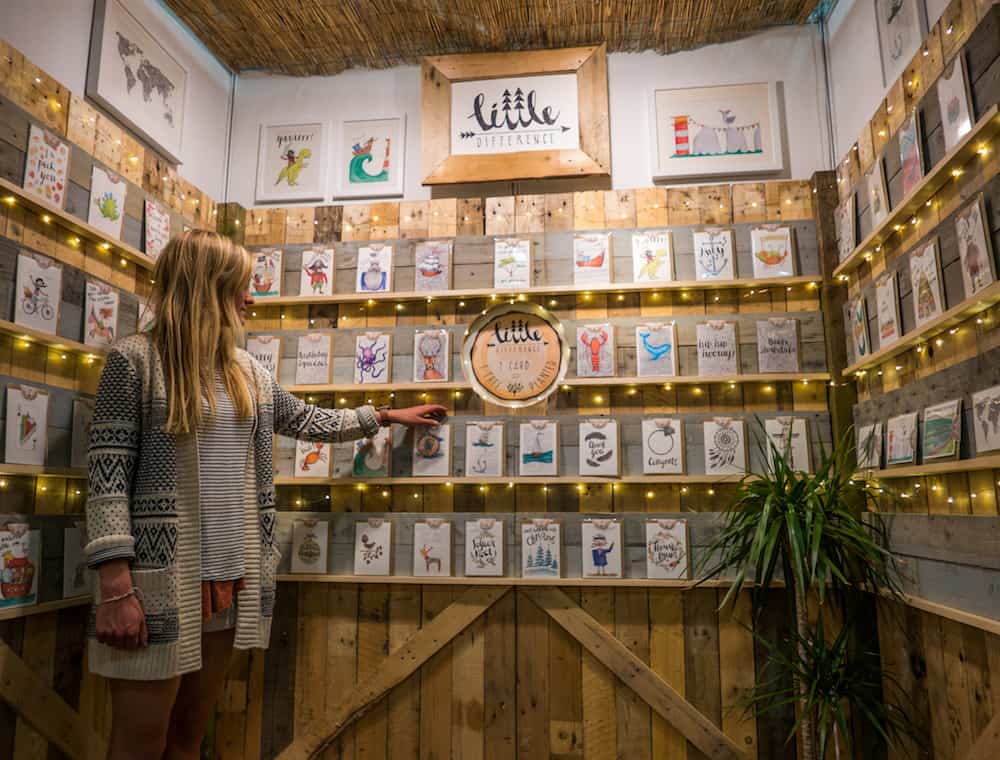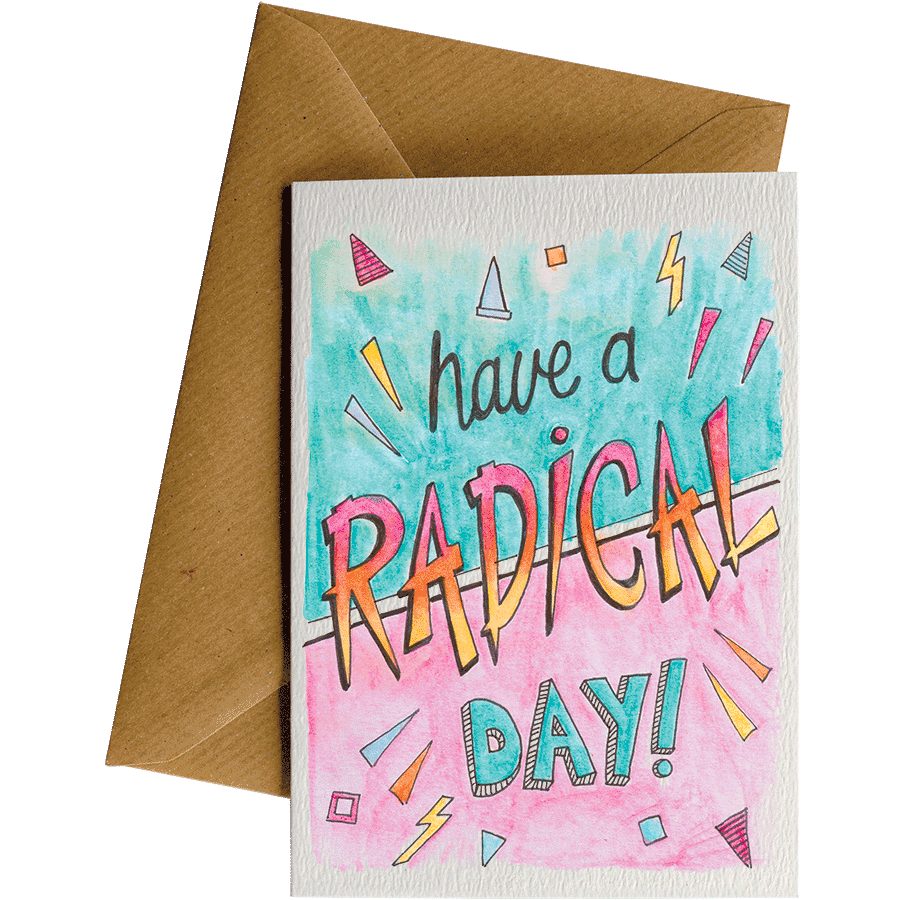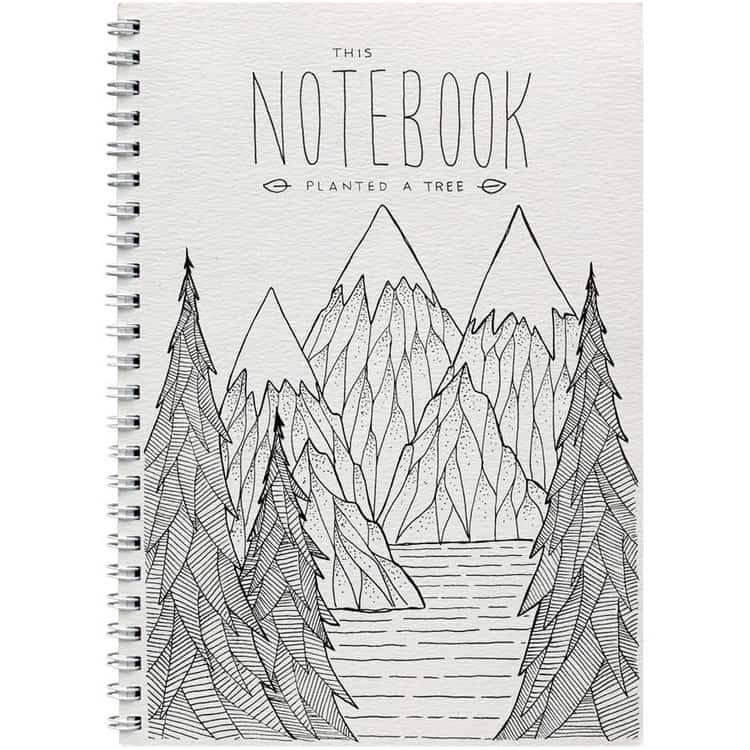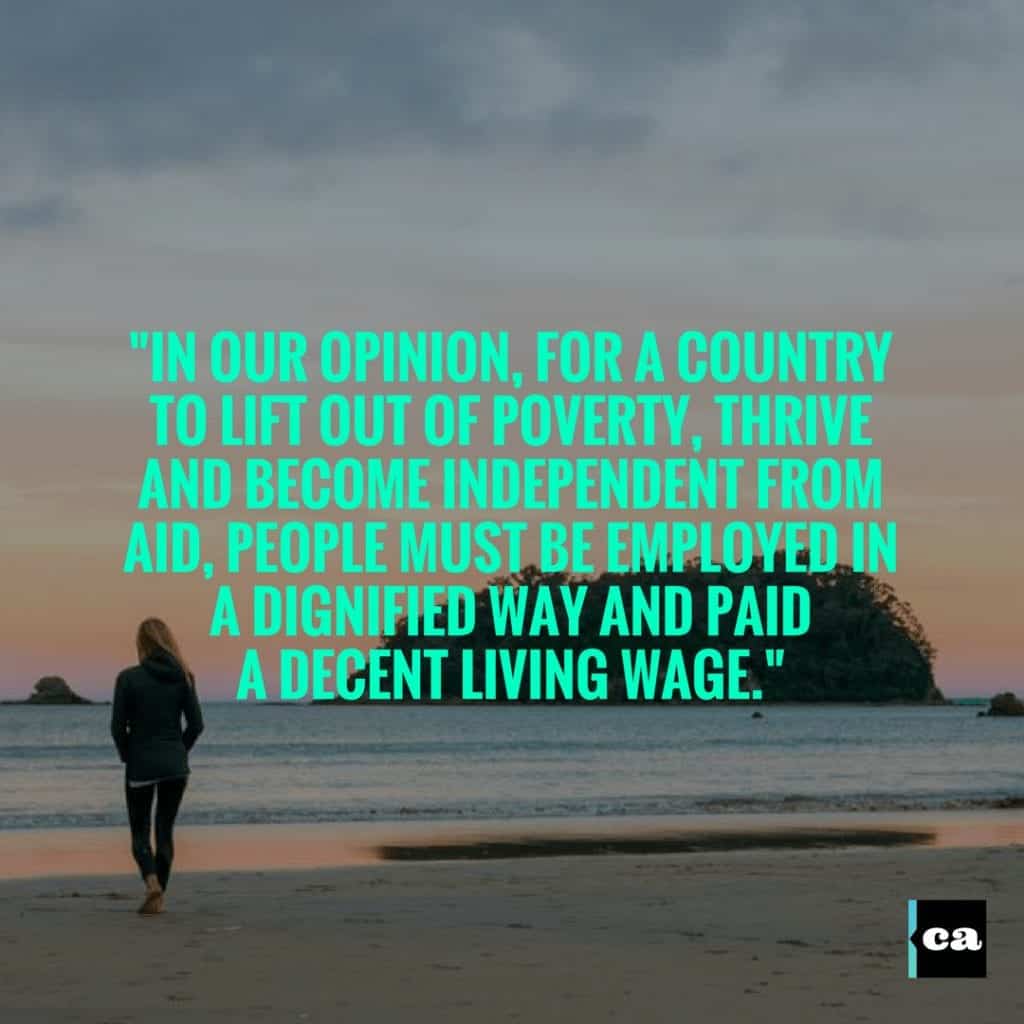Meet Little Difference, the UK-based start-up bringing you hand drawn greeting cards and paper products made from 100% recycled paper. Each unique card purchased plants one tree in rural Madagascar in partnership with their charitable partner, Eden Reforestation Project.
Through planting trees, the social enterprise is assisting with economic opportunity, education and reforestation in Madagascar.
With minimum wage around $2 a day, the project is lifting families out of poverty by paying fair wages to locals to maintain the nurseries and plant the trees in areas of reforestation need. To date, Little Difference has planted 25,000 trees.
See below a Q & A with Little Difference co-founders, Sophie Stevens and Pete Oswald.
Coming from two beautiful countries, with the most gorgeous outdoor landscapes, how do you think your love for nature and outdoors compares to others around the world?
We both feel very lucky that we got to grow up surrounded by beautiful landscapes and live an outdoors lifestyle. We feel this has given us a great appreciation for nature and a passion to protect it.
We have also been lucky enough to visit many other beautiful countries including Madagascar, which we visited earlier this year.
Seeing unbelievably beautiful countries like this being exploited and destroyed due to human activity is heartbreaking and has given us an even bigger motivation to try and restore what has been lost.

What inspired the idea of Little Difference? Was using Sophie’s artist talent for social good always a goal of yours?
Little Difference was inspired by the motivation to create our own business and make a living in a way that was environmentally positive. We use Sophie’s art because we wanted to produce something beautiful that people would not only enjoy buying and giving to others, hopefully to keep, but also know they are helping to do their bit for the planet.

Why Madagascar?
Madagascar is an example of an area which has suffered tremendously as a result of deforestation by human activity. 90% of Madagascar’s forests have gone and the multiple effects are overwhelming. Red top soil is eroding into rivers and fish stocks are being depleted due to run off.
The country is bleeding red from it’s rivers out into the ocean and filling up the estuaries, people are starving because nothing will grow in the now arid land which was once rich forest. All these negative effects eventually have a flow-on effect to the developed world as resources become scarce and people are displaced.
The planting of trees in Madagascar means the native forest is regenerated, creating a diverse ecosystem, stabilising topsoil, regenerating fish stocks and cleaning rivers.
By employing local Malagasy people to do the planting, they are being lifted out of poverty and are being employed in a dignified way for a good wage. They can feed their families, send their children to school and learn the importance of protecting the forest.

Tell us your favorite part of visiting Madagascar.
Visiting the tree planting sites in Madagascar was a really incredible experience. We got to meet the local planters, get our hands dirty and see first hand the affect the tree planting is having to so many lives.
The majority of Malagasy people are living on less than $2 per day, most of them are just trying to feed their families. As a direct result of products sold by Little Difference, many of them are now employed and paid a decent wage to replant the lost native forest and in turn, teaching them about the importance of protecting the forest as now their livelihood depends on it.

How did you both get connected with Eden Reforestation Project?
We were certain we wanted to plant trees so researched Reforestation charities online and came across Eden Reforestation Projects, we really respected their ideas and ethos so contacted them directly for a Skype meeting with their founder, Steve.
We had to put a lot of trust in where the money was being donated and as an incredibly well established charity with a very holistic approach we were very confident that it was the right choice. Visiting the charity at work in Madagascar and witnessing the effects first hand has just reassured us ten-fold that this charity was the right choice.
In your personal opinion, why is a holistic approach to empowerment and development so important?

In Madagascar, It used to be that to make a living, many Malagasy people would slash and burn forest to clear land for farming and to make charcoal to sell in sacks for cooking. Eden Reforestation Projects will now pay those people more money for a sack of mangrove propagules, which they can collect from mature trees in an old mangrove forest, than they could previously receive for a bag of charcoal.
Thus creating a motive for local people to protect the forest which is their (now ongoing) livelihood. Local people are not only employed to collect seeds, transport and plant trees but they are running the whole process.
It is overseen by Eden Reforestation Projects to avoid corruption but the Malagasy are the supervisors, bosses and in charge of other staff members. Whole communities are employed by the forest and with more and more people relying on these regenerating forests for their income, it is in everyones interest to protect them.








